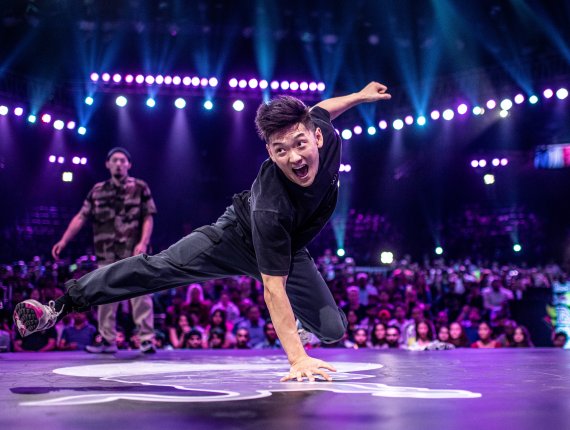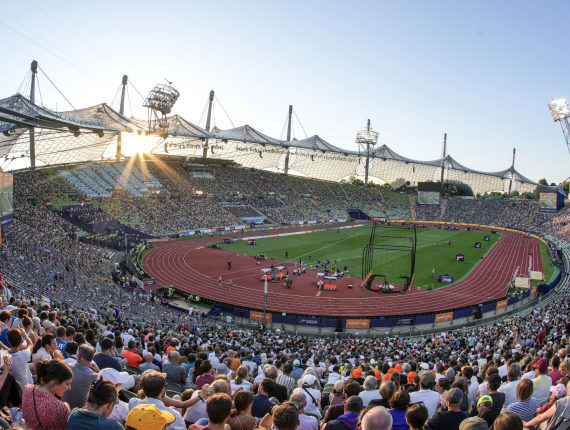Paris 2024 Summer Olympic Games
The Summer Olympic Games will be held in Paris from July 26 to August 11, 2024. After Japan hosted the Tokyo Games, the traditional competitions will once again be held in Europe. This is not a first for the French capital: it has already welcomed numerous athletes and sports fans from all over the world in 1900 and 1924.
Infrastructure advantage: Paris already has a large number of stadiums and sports facilities, 95% of all the necessary facilities. Only a few new stadiums had to be built. Many competitions will be held in Paris or in the north of the city, and famous landmarks will also serve as venues. For example, the equestrian competitions will be held at the Palace of Versailles. Of course, the Seine River in Paris is not suitable for all water sports. That's why the sailing competitions will be held in Marseille. On the other hand, the surfers, who are part of the Olympic program for the second time at the 2024 Summer Games in Paris, will not compete on the French Atlantic coast, but in Tahiti, the largest island of French Polynesia.
Breakdancing is part of Parisian youth culture. That's why expectations have been especially high in the host country since it was announced that this dance sport will be part of the program for the 2024 Summer Olympics. Breaking is not the only new sport; skateboarding is also taking part for the first time. In total, 48 disciplines will be held in 32 sports. However, there are also withdrawals: karate, softball, baseball and 50-metre walking will not take place in Paris.
In line with the 2015 Paris Climate Agreement, the organizers have set a target of halving CO₂ emissions compared to the London 2012 and Rio 2016 Summer Games. Instead of building new venues, many sports halls and buildings have been refurbished or renovated. Only renewable energy will be used at the 2024 Olympic Games. In the interests of sustainability, all sports facilities are accessible by public transport and the city's cycling infrastructure has also been massively expanded in recent years.
As young and modern as the Summer Olympic Games in Paris, the Paris are supposed to be, their origins go way back in time: the first Olympic Games in antiquity were held in 776 BC. The ancient Greeks also focused on athletic competitions, but above all the games were a religious festival in honour of the gods. The games were held at the eponymous Olympia, the site of one of the largest temples of Zeus in Greece, which was already famous in antiquity for its magnificent temple complex.
The Olympic Games played an important role in the life of the ancient Greeks. The Olympics were a time of unification, organized - as today - at four-year intervals. Athletes came from all corners of the Greek world to compete for the ultimate prize: an olive wreath, return to their city-states as heroes and immortal glory. At the beginning of the Ancient Olympic Games, only athletics competitions were organized, but over time other sports and disciplines were added. In all, 20 different sports were held over several days. The winners of the games were admired and statues were immortalized.
The aim of the Olympic Games was, on the one hand, to demonstrate the physical qualities of the participants, but the games were just as important from a political point of view, as they served to strengthen relations between the various Greek cities.
In addition to victory, it was the Olympic values themselves that gave the games special significance - the noble competition and the endeavour to combine body, mind and will into a balanced whole.
Over the centuries, not only were more sports added, but the procedures and organisation of the Olympic Games also evolved. For example, a standardised schedule of events was introduced and an agreement was concluded with the Olympic Truce, which was intended to ensure the safe staging of the Games through a truce lasting several months.
The games were held for almost 12 centuries until the Roman Emperor Theodosius banned them in 393 AD. The Olympic Games were revived by the French Baron Pierre de Coubertin in the late 19th century. The Olympic Games, also known as the Summer Olympics, have been held every four years since 1896, except for the years during the world wars. For the ancient Greeks, the Olympics were still a men-only competition; it was not until 1900 that women were also admitted.
However, the history of the Winter Olympics is much shorter: they have no roots in antiquity, but were held for the first time in 1924 in Chamonix, France. Until 1992, the Winter Games were held in the same year as the Summer Games, before a two-year alternation between the Winter and Summer Games was introduced with the 1994 Winter Games in Lillehammer.







